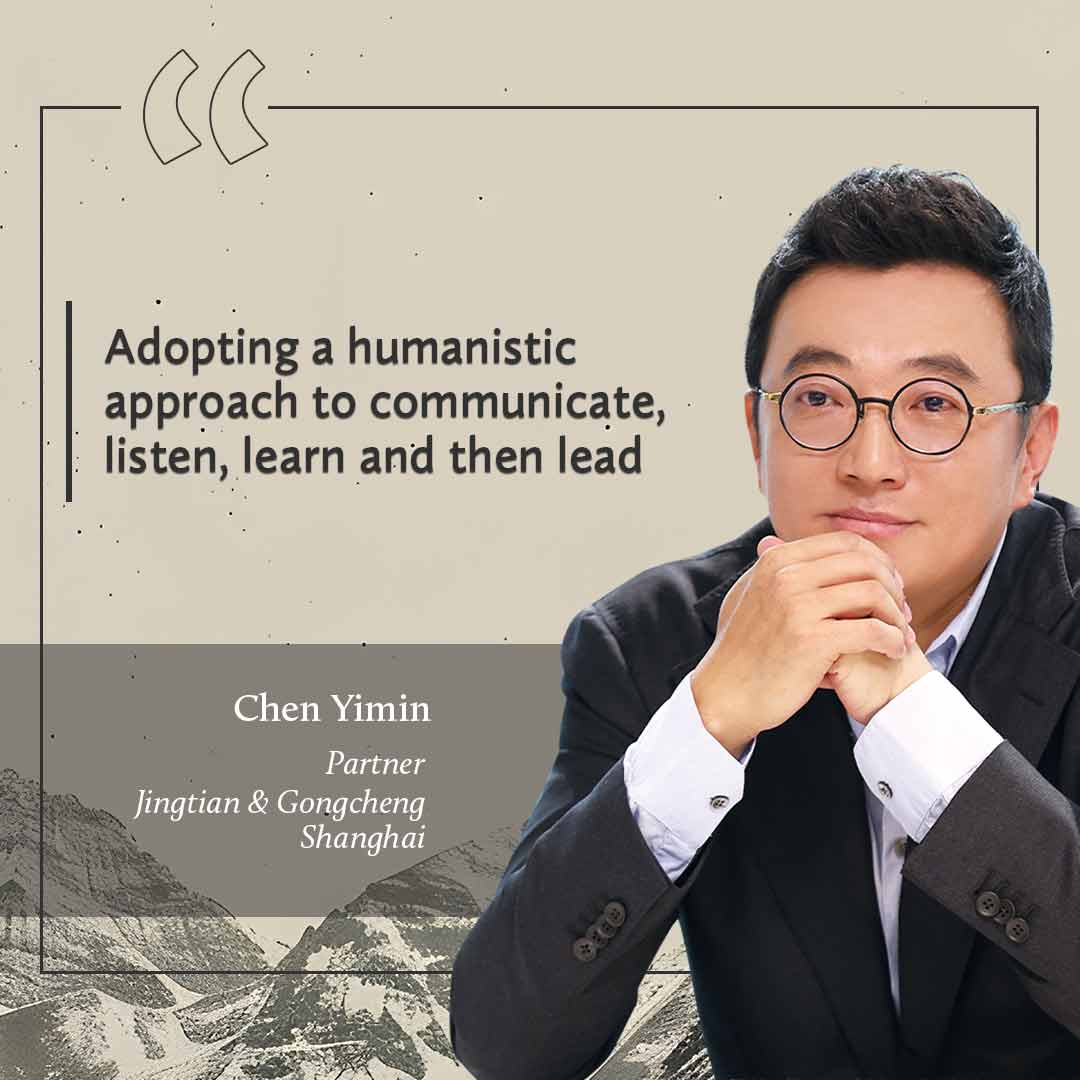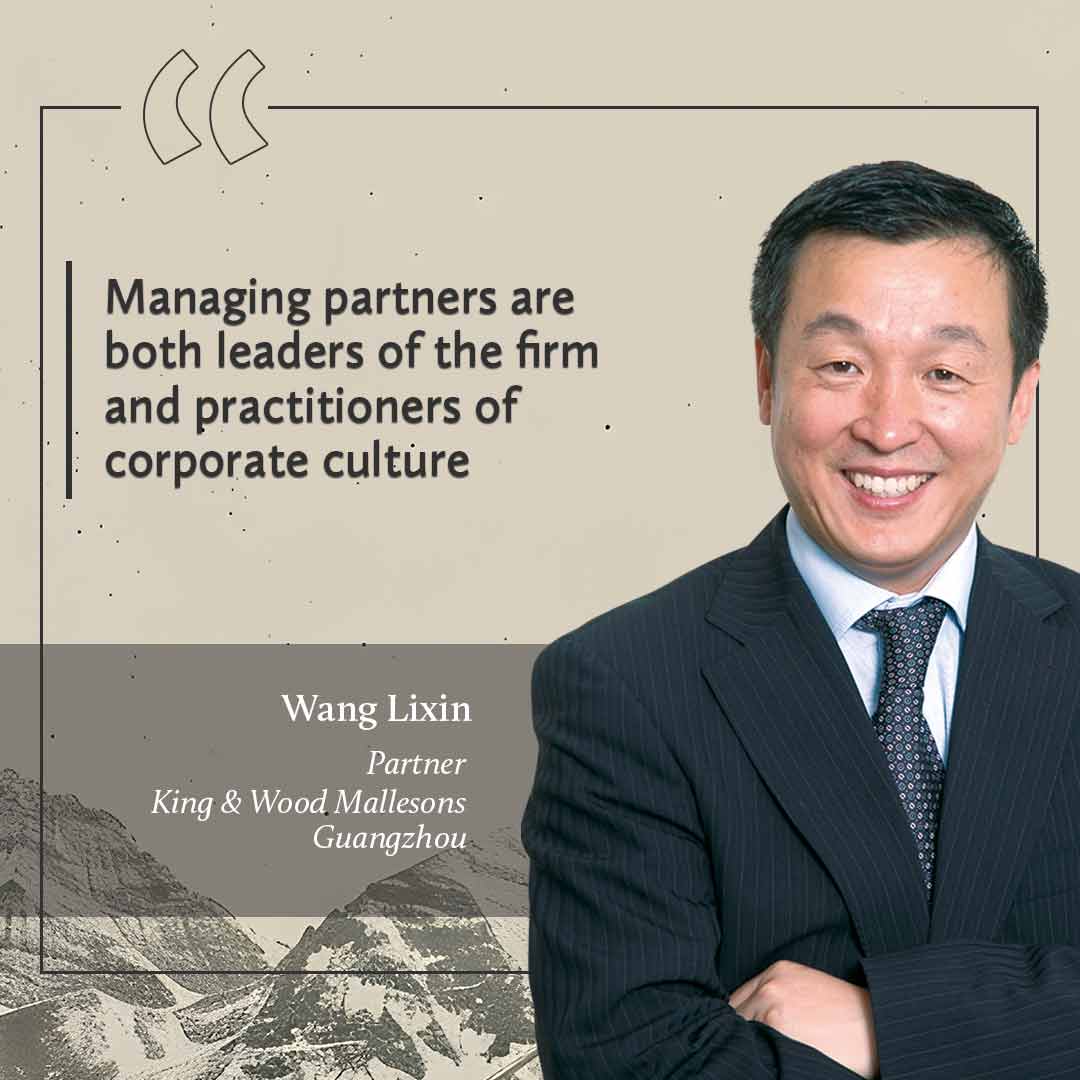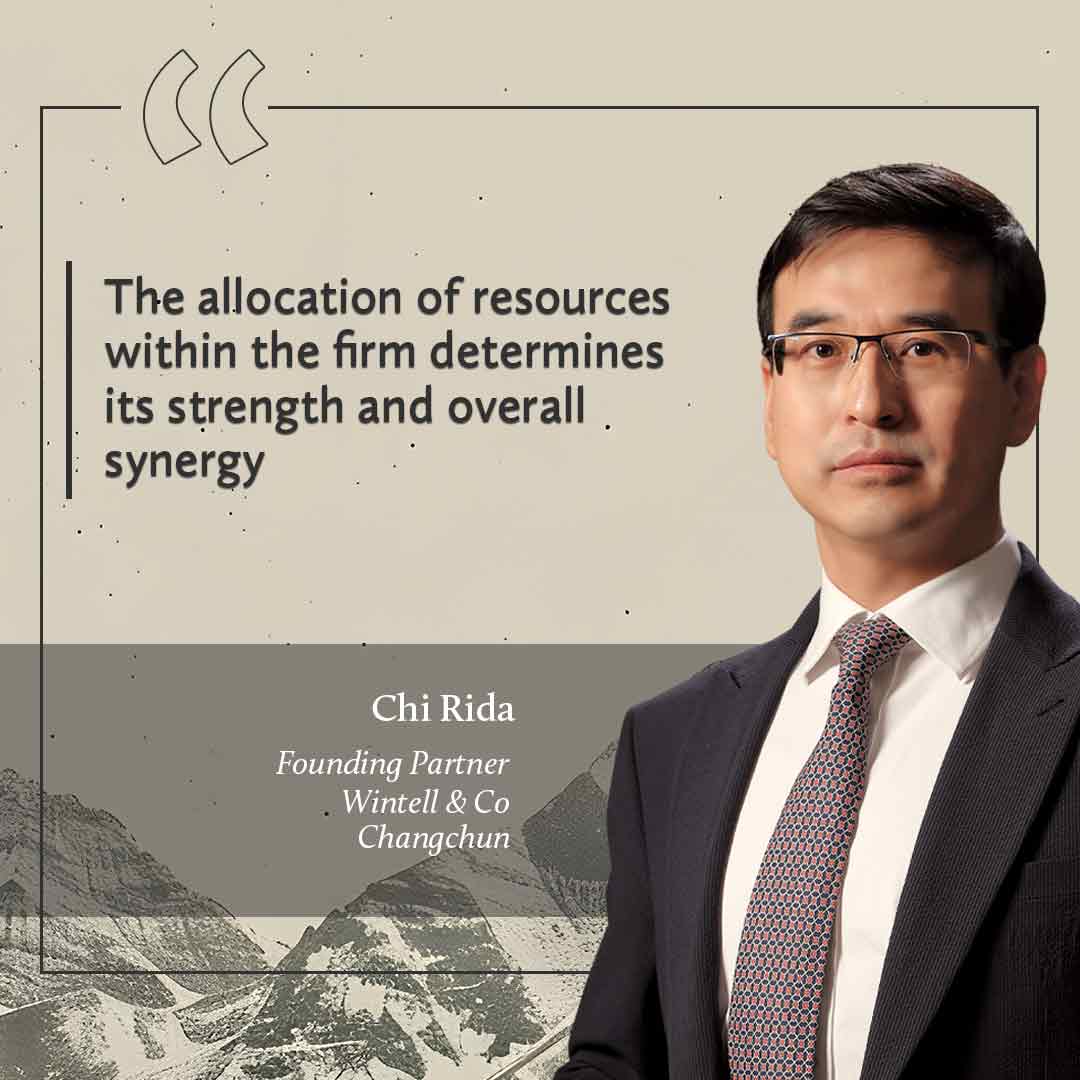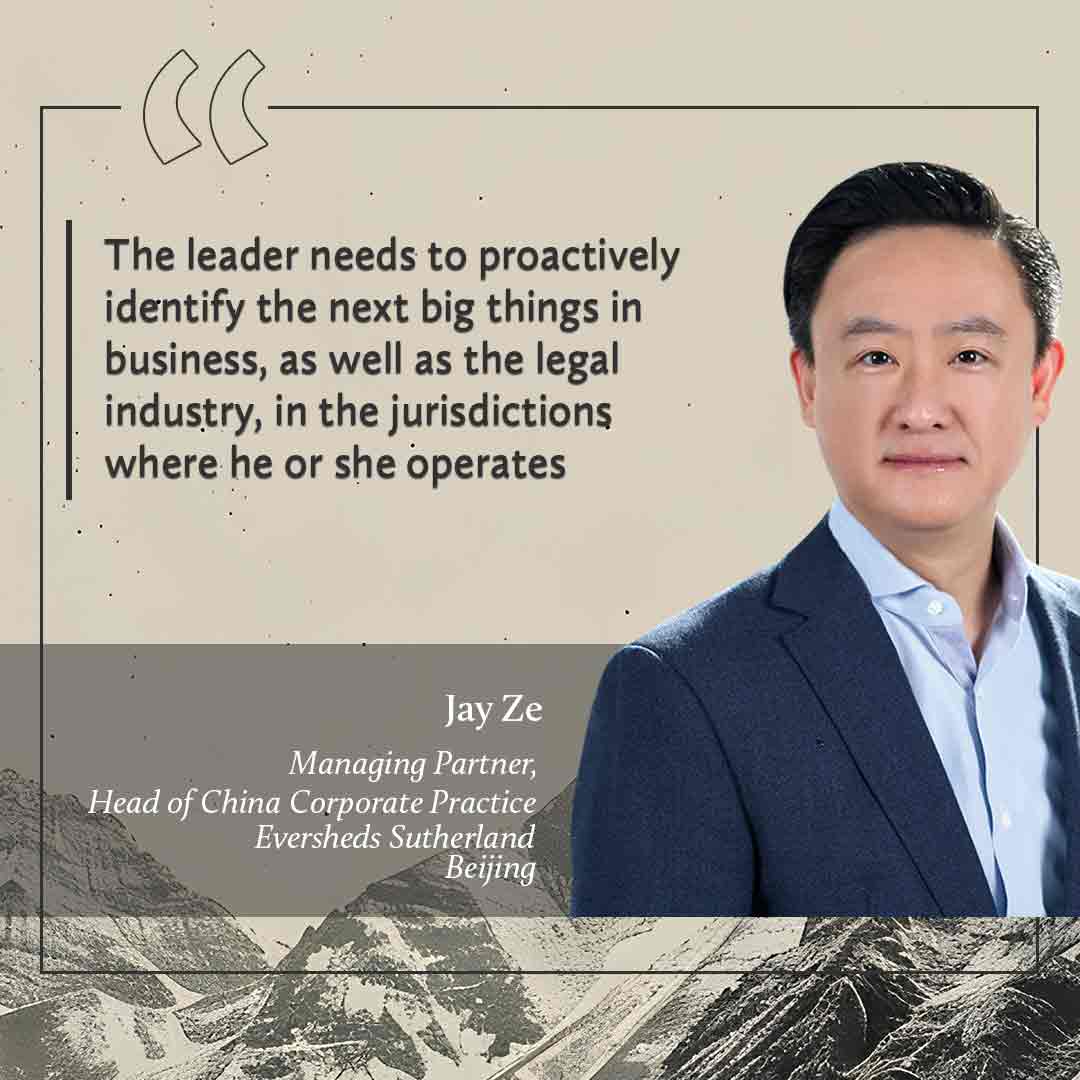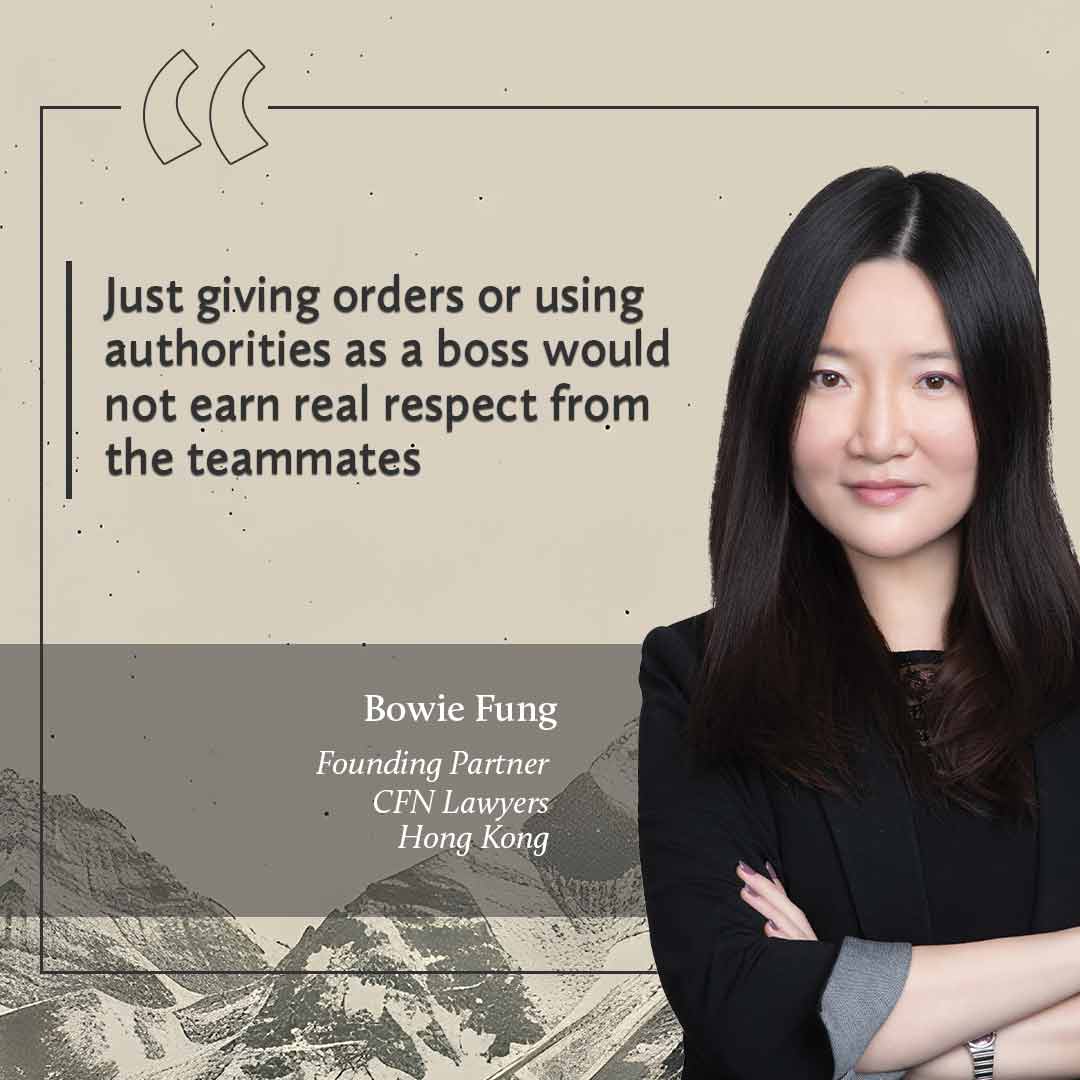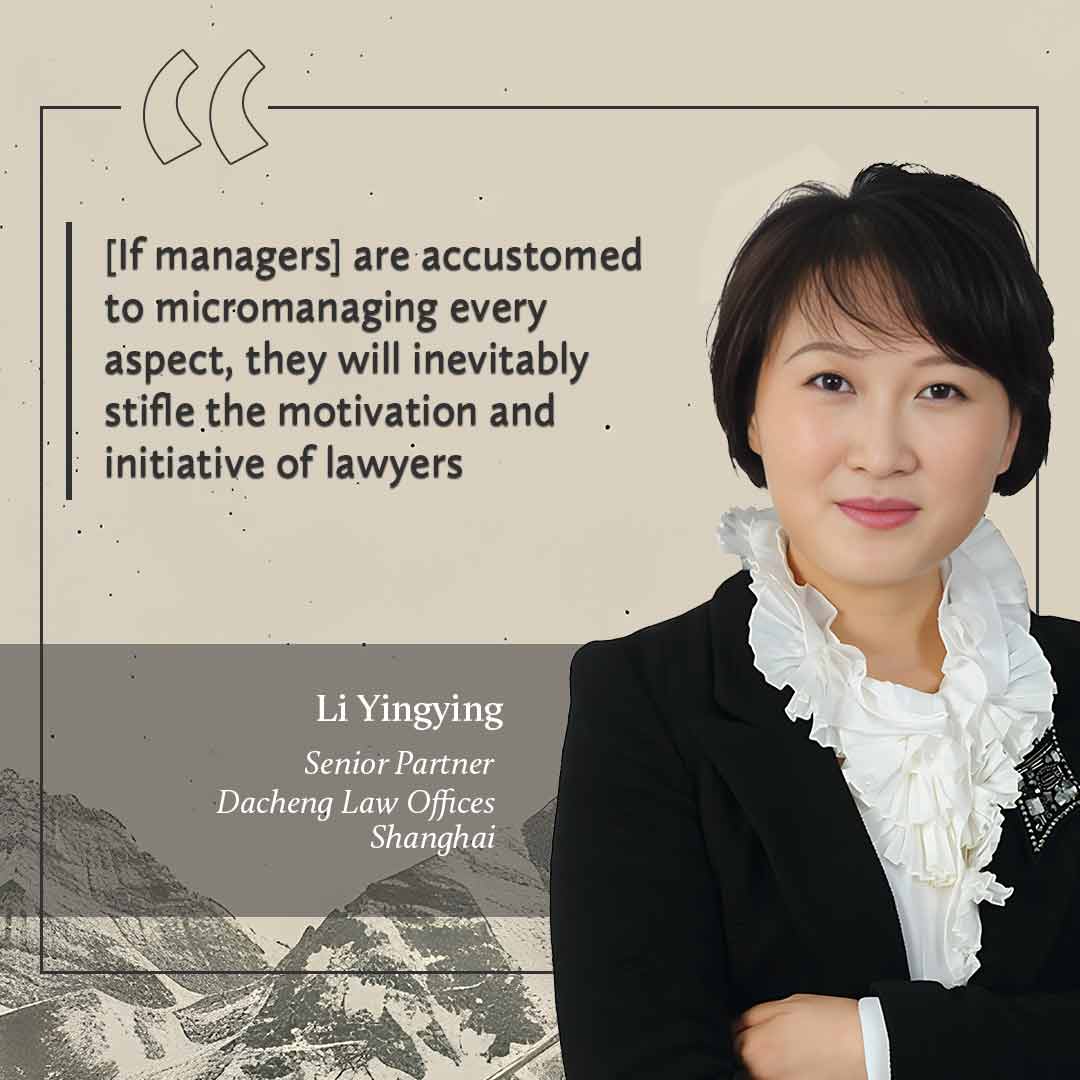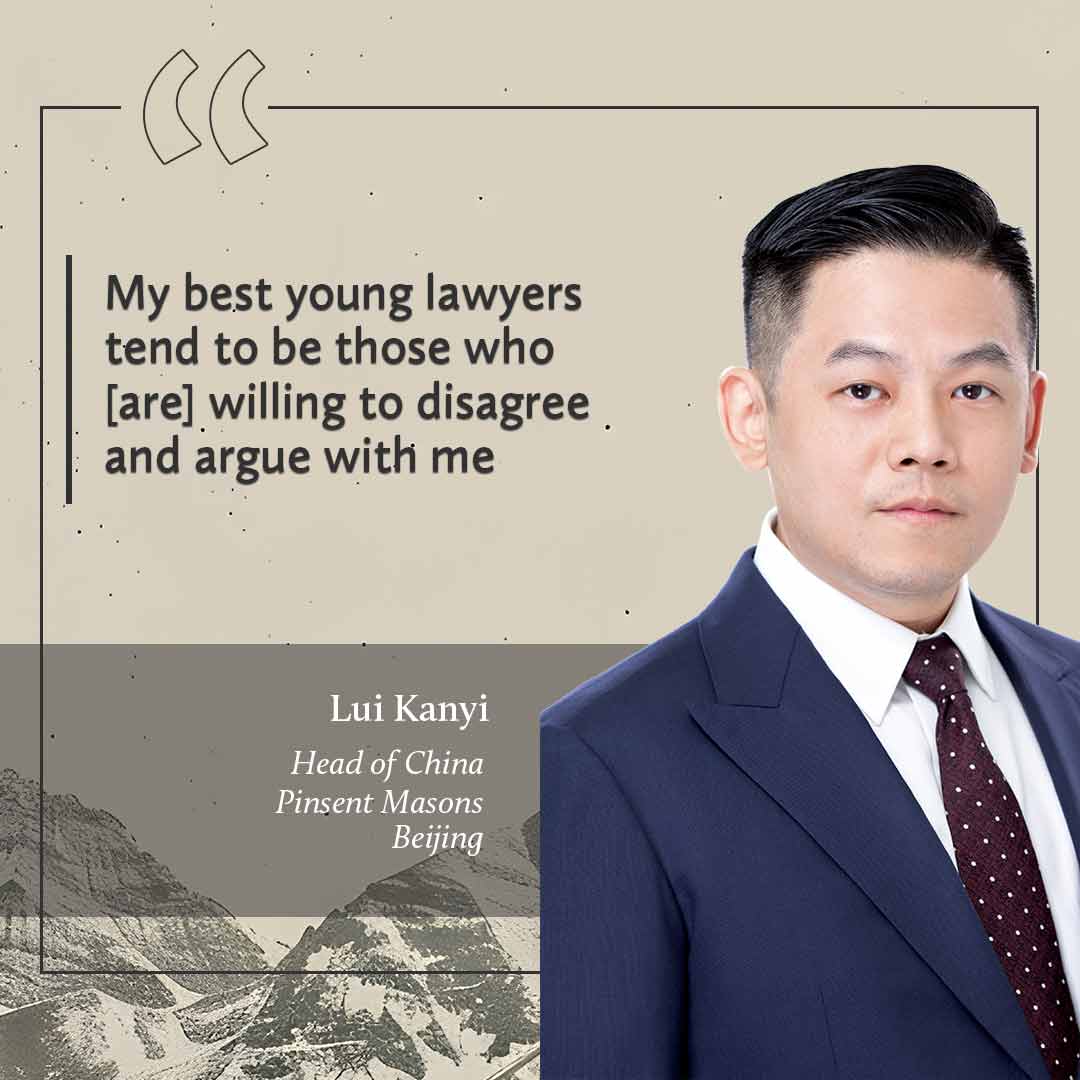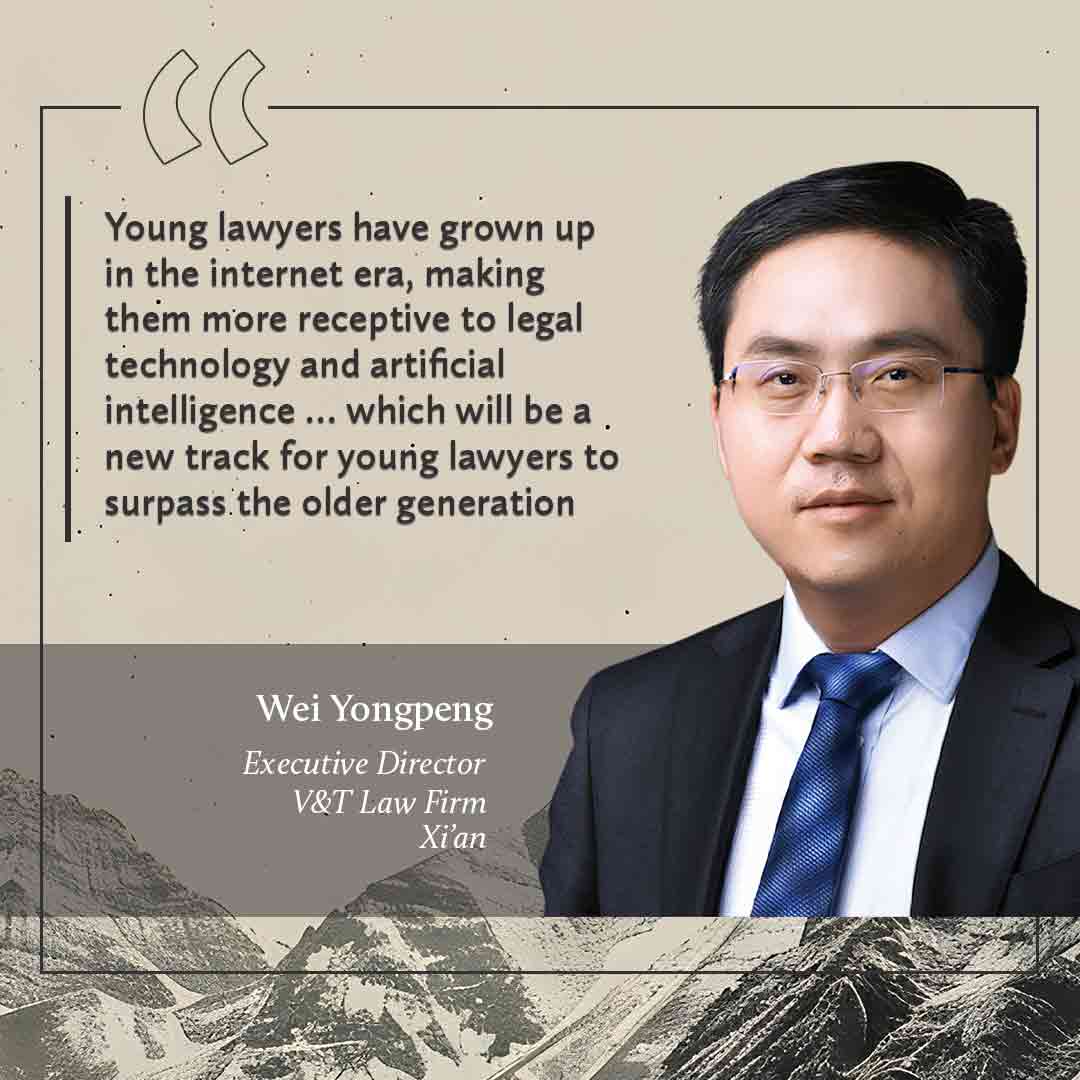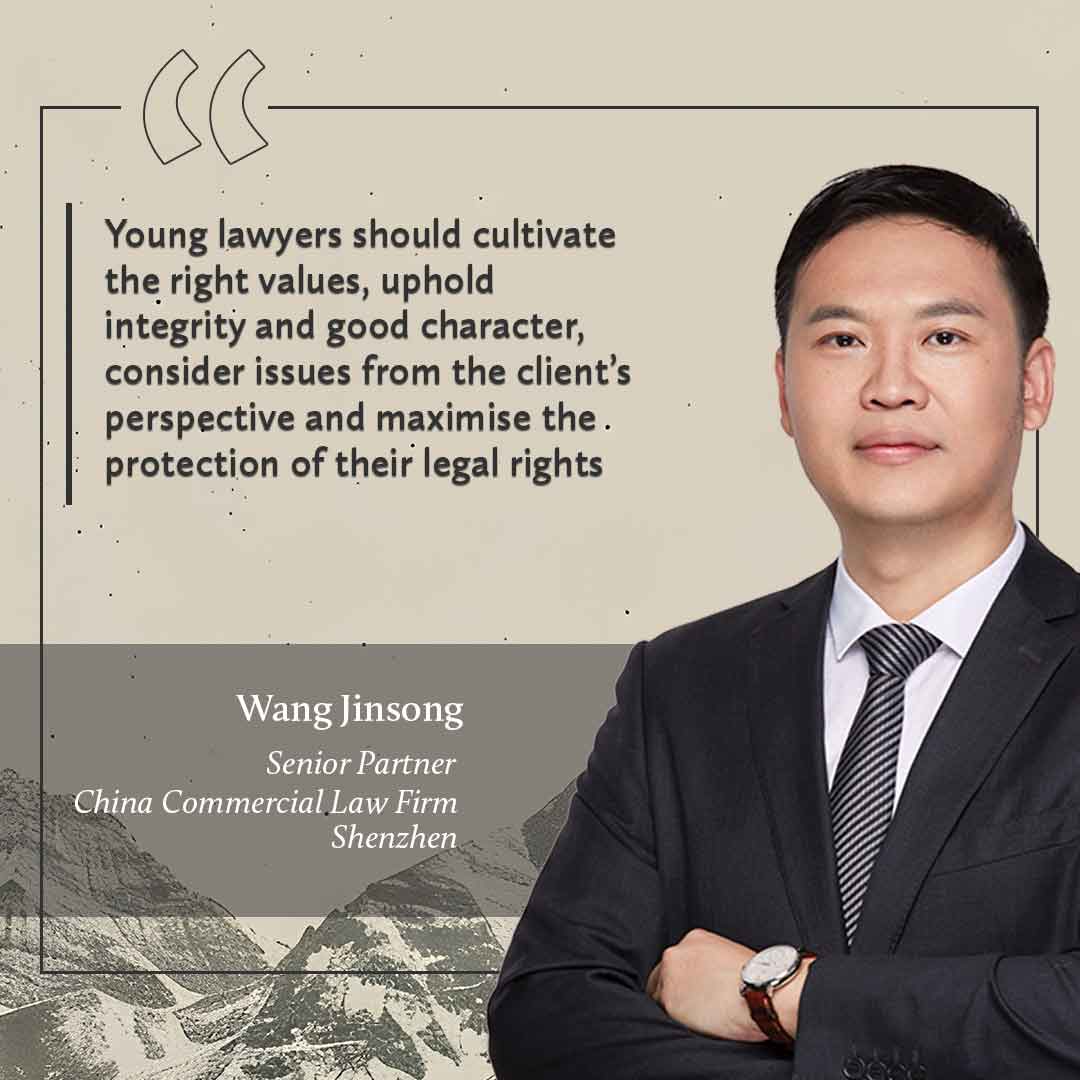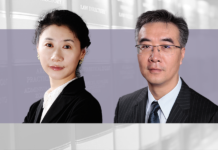There is no substitute for great leadership. In tough market conditions it serves as a beacon, guiding law firms and their young talent through adversity. Winny Zhang reports
How does one become a recognised leader in the legal profession? This question might leave even a silver-tongued courtroom lawyer searching for an answer. Imagine a law firm as an exquisite symphony. Its leader’s role would transcend that of being a mere musician; a leader is the conductor, skilfully harmonising the talents of each lawyer within the firm. Forget about the old days when you used to focus on playing multiple instruments. Instead, leaders inspire the players to realise their full potential and deliver an outstanding performance.
The latest A-List Visionaries, selected by China Business Law Journal, are the conductors. They lead the industry, paving the way for harmonious law firms and inspiring young talents to challenge conventions with innovative thinking. They shape a new future for law firms and the legal field as a whole.
The A-List 2023-24: Visionaries
After collecting a wide range of market feedback, the editorial team of China Business Law Journal announces The Visionaries in China’s legal market
During our survey of the A-List 2023-24, many of our “Rising Stars” told us that visionary leaders invest in the growth and development of their junior counterparts. They take time to understand young lawyers’ strengths and aspirations, providing constructive feedback and tailored support. Sometimes, a seemingly insignificant word or gesture of help from these leaders becomes a motto for young lawyers as they pursue their careers.
In this article, we uncover the golden rules of leadership and the positive influence that industry pioneers bring to their juniors. Some of the replies provide certain references for legal peers who are still exploring ways to summarise their management experience.
Golden rules of leadership
Undoubtedly, partners with exceptional leadership skills are to be found at the forefront of the industry and have deep expertise. However, what truly sets them apart is their ability to attract, retain and build a team of intelligent and resourceful legal talent. They achieve this by establishing a clear vision and goals that inspire a shared pursuit among all team members.
Chen Yimin, a partner at Jingtian & Gongcheng based in Shanghai, emphasises the importance of “adopting a humanistic approach to communicate, listen, learn and then lead”. Through positive interactions with employees and effective teamwork, he efficiently mobilises resources from different offices and co-ordinates their development.
Wang Lixin, managing partner of the Guangzhou office at King & Wood Mallesons, speaks highly of corporate culture as one of the firm’s core competencies. “Managing partners are both leaders of the firm and practitioners of corporate culture,” he says. Particularly in large-scale law firms with a global presence, establishing a mature set of corporate culture principles enhances internal cohesion, client loyalty and market positioning.
In modern business, organisations gain a competitive advantage by adhering to a “work more, get more” creed and establishing a differentiated distribution system. Last year, Gongcheng Law Firm, a leading homegrown law firm in northeast China, merged with Shanghai-based Wintell & Co, retaining the latter’s English name.
“The allocation of resources within the firm determines its strength and overall synergy,” says Chi Rida, the principal founding partner based in the firm’s Changchun office. During the integration, he paid special attention to restructuring the management and bonus system.
Gary Gao, a Shanghai-based partner at Zhong Lun Law Firm, says: “The most important rule of the team leader is [they] must be the one who is most creative in terms of exploring new legal serves arena, i.e. new types of cases.”
This idea is right up Jay Ze’s alley. Ze, the managing partner at Eversheds Sutherland’s Beijing office and head of its China corporate practice, says: “The leader needs to proactively identify the next big things in business, as well as the legal industry, in the jurisdictions where he or she operates.”
Work hard, play hard is the number one principle of Ann Ng, Maples Group’s head of Asia funds and investment management in Hong Kong. “We want to engender a high-performance culture with our teams but this must be balanced with a culture of enjoyment and humour,” she says.
Jordan Yang, a Beijing-based senior partner at AllBright Law Offices, also demonstrates care for his team members’ daily lives by implementing a home office and flexible working system tailored to each individual’s circumstances, allowing them to maintain a healthy work-life balance.
The approach “always follows a super fundamental principle – treating everyone equally and with respect. It has helped me to build an efficient, high-quality team with a high degree of stability,” says Yang.
Effective leadership can galvanise a team and bring about positive change. Conversely, poor leadership leads to employee negativity and conflict, and hinders team progress. Bowie Fung, a founding partner at Hong Kong-based law firm CFN Lawyers, disregards poor management behaviour. “Just giving orders or using authorities as a boss would not earn real respect from the teammates,” says Fung. “Shouldering responsibility, working hard, encouraging teammates, solving issues and advocating on behalf of the team are what a partner should do to set a sample for others to follow.”
How to set an example? Horace Lam, China’s co-country managing partner at the Beijing office of DLA Piper, suggests starting with being disciplined.
Xu Song, the deputy director and senior partner at Guozhi Law Firm in Guangzhou, expands on her principles of empathy by examining a Chinese character. “To manage or serve colleagues in law firms who are all highly educated people, I think, is based on the word ‘恕’, namely ‘as others mind’. Do unto others as you would have them do unto you,” says Xu.
The work of a lawyer is accompanied by numerous trivial details requiring undivided attention, but a leader’s role is quite the opposite. Li Yingying, the Shanghai-based senior partner at Dacheng Law Offices, says that if managers “are accustomed to micromanaging every aspect, they will inevitably stifle the motivation and initiative of lawyers”.
Instead, Li suggests managers focus on major issues and foster lawyers’ autonomy in their daily practice.
Yang, from AllBright, adds to a lesson in team management, advising managers to ensure compatibility when selecting talent. “A big mismatch [in] communication and work styles can drain the team’s energy and incur significant costs,” says Yang.
In constantly changing economic environments, each firm’s path to success differs. Summit Chen, branch director and senior partner at Dacheng Law Offices in Shanghai, notices that many small and medium-sized firms come to a fork in the path between scaling up or maintaining their current size.
“Organisations lacking a clear strategy and vision will lose their original strengths little by little in blind development,” says Chen. To guide their teams towards excellence, leaders must possess a resilient mindset that enables them to evaluate the situation thoroughly and create a practical roadmap.
Valued mentorship
The best leaders are always the best mentors. They instil hope and encourage their subordinates during downturns, providing an upward force that leaves a lasting positive impact.
Even though Jiang Yong, the founder of TianTong Law Firm, has passed away, Meng Yetian, a former partner at the firm, remains deeply impressed by his wise teachings and support. Meng recounts her initial timidity when representing the firm and promoting her expertise to the outside world. Jiang reassured her, saying, “Who says lawyers have to be old to excel? You are the best in the firm when it comes to visualisation and you will represent us with ease.”
Jiang’s fearlessness in entrusting important tasks to young individuals contributed to Meng’s rapid growth, leading her to become the youngest partner at TianTong at that time.
“Mr Jiang had boundless ideas and the ability to swiftly implement them, because he had the bravery to create ideas and realise them,” says Meng. “I hope I will always be prepared, courageous and bravely move forward.” Meng has joined the Beijing office of Hui Zhong.
Qi Yiduo, a partner at Hengdu Law Firm’s Beijing office, began his legal career at KWM under the mentorship of partner Jiang Junlu.
Jiang, now the chief partner at Puran Law Firm, is deeply involved in labour law and has been significantly involved in the legislative process. He was commissioned by the Legislative Affairs Office of the State Council to undertake research on the Labour Contract Law and served as head of the research team.
Jiang encouraged Qi to be rooted in China, cultivate a broad perspective and actively participate in lawmaking to become an outstanding lawyer. This influenced Qi’s choice of career path and, after time at DLA Piper, he ultimately decided to return to a Chinese law firm and actively engage in legislative projects.
Christine Chang, a partner at Dacheng’s Beijing headquarters, appreciates the mentoring provided by firm director Yuan Huazhi when she first joined the firm. “Despite my academic excellence, I discovered a significant gap between theoretical knowledge and realistic practice in my work,” says Chang. Yuan taught her to deal with complex legal issues and build trustworthy relationships with clients, facilitating a smooth transition for Chang during her early career.
Zhai Xueming, currently a partner at Dowway & Partners’ Beijing office, was deeply impressed by Fei Ning’s dedication to professional skills when Zhai began his career a decade ago. Fei is the co-founder at Hui Zhong.
As Zhai’s legal expertise deepened, he realised “the pursuit of professional competence extends beyond enhancing the value of legal services. It should also be upheld and inherited as a principle and belief that lawyers hold at a spiritual level.”
Beyond law firms, some leaders continue to navigate other legal institutions. Ye Lin, the vice president at the China Law Society’s Commercial Law Research Committee, is a law school professor at Renmin University of China and was the academic adviser of Deng Xiaoming, a partner at Han Kun Law Firm in Beijing. “Thanks to Professor Ye’s teaching and caring, I was able to embark on this professional career,” says Deng.
Grace Guo, a senior partner at Hiways Law Firm’s Shanghai office, reflects on her career in the courts. She credits the guidance of an instructing judge for enabling him to resist the allure of monetary gains and remain committed to intellectual property, delving deeper into it to this day.
Promising young talent
The invaluable management wisdom acquired by legal leaders and the guidance they bestow upon their young protégés can serve as valuable nourishment for aspiring lawyers. Leaders share a common goal of identifying the next generation of legal trailblazers who can carry forward their legacy.
But what is it that allows legal leaders to identify standout potential among the latest cadre?
“To be good lawyers, not mindless robots” is the answer from Lui Kanyi, head of China at Pinsent Masons in Beijing. “My best young lawyers tend to be those who [are] willing to disagree and argue with me,” says Lui.
Without strong legal skills, lawyers may remain unnoticed. But even with abundant legal knowledge, meeting minimum requirements is not enough, according to Maples Group’s Ann Ng. She concurs with Chen Weiheng, senior partner and head of greater China practice at Wilson Sonsini in Hong Kong, that lawyers must develop an ability to balance commercial awareness with legal analysis.
Zhan Hao, the managing partner based in the Beijing headquarters at Anjie Broad, values the capacity of young lawyers to draw on their innate knowledge in emerging fields. Similarly, Wei Yongpeng, executive director at V&T Law Firm in Xi’an, stresses the significance of this aptitude.
“Young lawyers have grown up in the internet era, making them more receptive to legal technology and artificial intelligence,” says Wei. “The new era will present them with fresh opportunities and challenges, which will be a new track for young lawyers to surpass the older generation.”
For law firms to flourish, they must not rely solely on individual efforts. The same principle applies when evaluating the abilities of the next generation. Drawing on the example of the capital market, Jingtian & Gongcheng’s Chen believes that successful listing projects require collaboration to achieve mutually beneficial outcomes, as “it is difficult to achieve success alone”.
Zhang Dongjing, the director at Zhongsan Law Firm in Wuhan, goes even further by saying that “young lawyers who can proactively communicate and express with others will … stand out in client acquisition and case handling”.
Liu Yuanxia, a Beijing-based senior partner at DOCVIT Law Firm, evaluates the development potential of young lawyers based on their love of the law. “The desire and passion for the legal profession, coupled with persistent effort, are the most crucial attributes for the younger generation to establish themselves and thrive in the legal field,” she says.
Engaged in the legal profession, the next generation of leaders naturally harbour an unwavering pursuit of fairness. To achieve this, as Wang Jinsong, a senior partner at China Commercial Law Firm in Shenzhen, says: “Young lawyers should cultivate the right values, uphold integrity and good character, consider issues from the client’s perspective and maximise the protection of their legal rights.”







